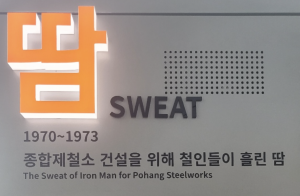Pohang: POSCO Museum
Photo essay of wall text of POSCO Museum of Pohang

Photo essay of wall text of POSCO Museum of Pohang

XXX

The organization saw cholera cases pop up and immediately opened clinics in those areas to try to reduce the impact and spread of cholera, as well as mental health services for families that lost loved ones. They vaccinated for cholera, and improved the infrastructure in the areas to reduce the spread of all waterborne diseases.
It is part of the ebola response, but does not disclose any sources of funding.
Examples from history are used to support claims from 9/11, as the author is a historian, and probably following the saying "history repeats itself" to show similarities between disasters and responses.
Newspaper atricles were also cited to show public response.
Thae laws are examined and explained to the reader. Examples of citations from physicians are also included with stories of the individual's journey and experiences.
The study addresses the survivors of Katrina fairly soon after the disaster, at a time when they likely do not have much stability. Many were without homes, may have lost family or friends, neighborhoods were torn apart, schools were destroyed, and money was very thin. It was not an easy time, so focusing on this group at such a stressful time was the goal of the study.
This article has been referenced in other articles that study disaster PTSD, mental health after hosting refugees from a disaster, and using epidemolody to help draft policies for disaster response. These papers all further the research and possible benefits for humanity.
The paper mostly focuses on how the survivors recieve long-term care, since they have severe financial struggles in the aftermath of the disaster. This impacts emergency response since we do need to be funded in some way, and if it is not covered by the healthcare system in the area, then the cost is placed on the individual. If they are in need of immediate care, then this is an issue. They have many health conditions caused by the disaster that could cause a sudden health emergency. If they do not feel they can financially support calling an ambulance, then it places the person's life in jeopardy.